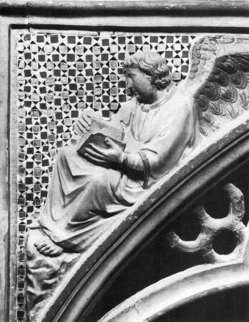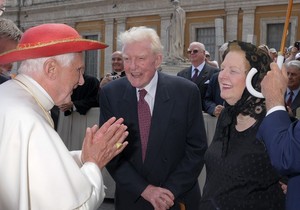…[freedom] is so powerful that as long as a man wills to use it nothing is able to remove from him the … uprightness (i.e., justice) which he has. By contrast, justice is not a natural possession.
Author: Paul Zalonski
Priest: be ministerially faithful & live a life of prayer
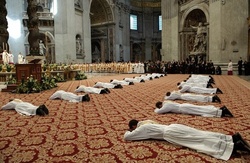 Benedict XVI highlighted the most important points in
Benedict XVI highlighted the most important points in
the life of a priest: “Your faithfulness in the exercise of the ministry
and the life of prayer, your search for holiness, your total self-giving to God
at the service of your brothers and sisters, as you expend your lives and
energy in order to promote justice, fraternity, solidarity and sharing.” (Discourse
to Priests in the Sanctuary of Aparecida, Brasil, 12 May 2007)
Connecticut State Ethics Office charges Diocese of Bridgeport violated law
Helen Kawa Zalonski, the 6th anniversary of death
Today is the sixth anniversary of death of my paternal grandmother, Helen Kawa Zalonski. He died on the afternoon of Ascension Thursday in 2003. She is very much missed. May her memory be eternal and may the Good Shepherd keep her in His presence.
Daily Rule of Prayer: Mass, adoration, lectio divina…
For the most part, the time for priestly and diaconal ordinations have come and gone. Where I am for the summer, a newly ordained priest is due to arrive in a few days. Having heard plenty of ordination homilies over the years none are as insightful as Benedict XVI’s especially when he proposes a plan to be spiritually fit. Of course, all what is said is not restricted to priests but applicable to the laity as well. All of us reading this post are familiar with all the points made about developing a prayer life and seeing them together constitutes a serious plan. Father Mark draws our attention to one item that is near-and-dear to many of us: lectio divina. I am re-posting a portion of my friend Father Mark’s recent May blog entry because I think it’s helpful.
What is Father Everypriest’s daily Rule of Prayer according to Pope Benedict XVI? Let’s consider the elements of the Rule in the order in which the Holy Father presents them.
1) Daily Holy Mass. Daily. Not 6 days week, not 5, or 4 days a week, but daily. The liturgical cycle in its hourly, daily, weekly, and yearly rhythms is given us precisely to facilitate our “abiding” in Christ hour by hour, day by day, week by week, and year after year. Integral to the liturgical cycle is daily Holy Mass. The Eucharistic Sacrifice sends the divine lifeblood coursing through one’s spiritual organism. Without daily Mass, the priest will succumb to spiritual anemia.
2) The Liturgy of the Hours. The Hours give rhythm and grace to daily life. They are a school of discipline (discipleship), a supernatural system of irrigation channeling grace into every moment of the day, a privileged way of offering thanks in communion with all who, “in heaven, on earth, and under the earth,” confess the Name of Jesus and bend the knee before Him. A priest who loves the Divine Office will enjoy an interior life that is sane, and sound, and wholly ecclesial. Fidelity to the Divine Office refines the Gifts of the Holy Spirit, sharpens one’s discernment, and imparts to everything the priest does a certain Eucharistic and doxological quality.
3) Eucharistic Adoration. Are you surprised? Eucharistic adoration has known a kind of springtime since The Year of the Eucharist (2004-2005) that was also the year of the death of Pope John Paul II and of the election of Pope Benedict XVI. Two Americans known for loving their brother priests and ministering to them tirelessly –Archbishop Fulton J. Sheen and Father Gerald Fitzgerald of the Holy Spirit– insisted on a daily hour before the Blessed Sacrament as a sine qua non of priestly spirituality. The priest who adores the Blessed Sacrament exposes his weaknesses and wounds to the healing radiance of the Eucharistic Face of Jesus. Moreover, he abides before the Eucharistic Face of Jesus as the representative of his people: of the sick, the poor, the bereaved, and of those locked in spiritual combat. The priest who looks to the Eucharistic Face of Jesus, and draws near to His Open Heart in the Sacrament of the Altar, will, just as the psalm says, be radiant, and he will not be put to shame.
4) Lectio Divina. Again — a monastic thing? No, a Catholic thing. The quality of a priest’s preaching is directly proportionate to his commitment to lectio divina. Neglect of lectio divina leads to mediocre preaching. Opening the Scriptures is like opening the tabernacle: therein the priest finds the “hidden manna” his soul craves. The four steps of lectio divina can be accommodated to any length of time: 1) lectio, i.e. the Word heard; 2) meditatio, i.e. the Word repeated; 3) oratio, i.e. the Word prayed;
4) Contemplatio; i.e. the indwelling Word. Lectio divina cannot be occasional;
it is not a random pursuit. Learn to say, “I am not available.” Get over feeling guilty about taking time for God!
5) Holy Rosary. Yes, the daily Rosary. It’s a spiritual lifeline that has saved many a priest from spiritual shipwreck. The brilliant and holy exegete and founder of the École biblique in Jerusalem, Father Marie-Joseph Lagrange, was observed praying fifteen mysteries of the Rosary each day, and asked, “Why, Father, do you, a great exegete, need to pray the Rosary?” “Because, ” he answered, “it decapitates
pride.” I would add that not only does the Rosary decapitate pride; it decapitates each of the seven capital sins: pride, greed, lust, anger, gluttony, envy, and sloth. With the passing of the years I have come to appreciate the profound wisdom of an old Dominican priest to whom I used to make my confession years ago. Invariably, after confessing my miseries, Father would ask, “Do you say the Rosary, son?” And invariably I would reply, “Yes, Father.” And then he would say, “Aye, then you’ll be alright.” A priest who prays the Rosary daily will be alright and, almost imperceptibly, will grow in purity and humility.
6) Meditation. Meditation can mean many things, even within our Catholic tradition. It is integral to the prayerful celebration of Holy Mass and the Hours. “it nourishes Eucharistic adoration. It is the second “moment” of lectio divina. It is the soul of the Rosary. In my own experience, meditation is related to “remembering the things the Lord has done.” Saint Gertrude the Great, a model of the mystical life grounded in the liturgy, used to say, “A grace remembered is a grace renewed.” Understood in this sense, meditation, by recalling the mercies of the Lord in the past, infuses the present with hope, and allows the priest to go forward with a holy boldness.
Is it necessary to set a period of time apart for meditation as such? That depends on whom you ask. The Carmelite, Jesuit and Sulpician traditions would hold fast to some form of meditation as a daily exercise. The monastic tradition has, on the whole, taken a more supple approach to meditation. It is a daily practice, but one diffused in every form of prayer, including the liturgy itself. One learns to pace one’s prayer, to pause, to breathe, to linger over a phrase, a word, or an image. Whether one espouses the Ignatian way or the monastic approach, meditation is an integral to every priest’s daily Rule of Prayer.
The mind of Christ is not myopic: the event of Pentecost broadens us
 The Holy Spirit makes the Christian experience truly Catholic and universal, open to all human experience. To be Catholic is to be universal and open to the world. Not only to Canada, North America Europe or Asia, or a certain familiar part of the world or segment of society, but it must be open to all, to every single person. The mind of Christ is not intended to be a selective mentality for a few but the perspective from which the whole world will be renewed and redeemed. An insight like this, the universal scope of salvation did not however come easily and without much pain and confusion.
The Holy Spirit makes the Christian experience truly Catholic and universal, open to all human experience. To be Catholic is to be universal and open to the world. Not only to Canada, North America Europe or Asia, or a certain familiar part of the world or segment of society, but it must be open to all, to every single person. The mind of Christ is not intended to be a selective mentality for a few but the perspective from which the whole world will be renewed and redeemed. An insight like this, the universal scope of salvation did not however come easily and without much pain and confusion.
In fact, the whole of the New Testament can be understood precisely as the emergence of the Catholic, the universal, in Christian life. Christianity, had it not moved from where it was particular and small would have just been a small modification of the Jewish experience, a subset of Jewish piety that was still focused in and around Jerusalem and the restoration of a literal kingdom of Israel. The first two generations of Christians discovered that Christianity could not be just that. Because they had received the Holy Spirit, which is the universal principle, the Holy Spirit opened peoples’ eyes to the universal import of the Christian truth and through the encounter with non-Jews who received the Holy Spirit.
The artists of the Middle Ages often contrasted the Tower of Babel with the “Tower” of the Upper Room. Babel symbolizes the divisions of people caused by sin. Pentecost stands for a hope that such separations are not a tragic necessity. The babbling mob of Babel compares poorly with the heartfelt unity of the Pentecost crowd. Babel was a mob. Pentecost was a community. A people without God lost the ability to communicate. A people suffused with the Spirit spoke heart to heart.
At Pentecost the full meaning of Jesus’ life and message is poured into our hearts by the Spirit alive in the community. The New Testament seems to say that – for a fleeting moment – the nations of the earth paused from their customary strife and experienced a community caused by God. The brief and shining hour of Pentecost remains to charm and encourage us to this day.
These paragraphs come from Basilian Father Thomas Rosica’s essay on the Pentecost scriptures published on Zenit.org for May 28, 2009. Father Rosica is the executive director of Salt and Light TV.
A video on Pentecost can be seen here.
Pope & the Thatcher
The Suscipe
The Suscipe prayer of Saint Ignatius of Loyola is a regular part of my spiritual regimen –and it has been so for many years– because it reminds me of the total abandonment to God’s will that I want to live. I offer the prayer here in English and Latin for your convenience. It is a perfect part of morning prayer.
Receive, O Lord, all my liberty. Take my memory, my understanding, and my entire will. Whatsoever I have or possess Thou hast bestowed upon me; I give it all back to Thee and surrender it wholly to be governed by Thy Will. Give me love for Thee alone along with Thy grace, and I am rich enough and ask for nothing more.
Suscipe, Domine, universam meam libertatem. Accipe memoriam, intellectum, atque voluntatem omnem. Quidquid habeo vel possideo mihi largitus es; id tibi totum restituo, ac tuae prorsus voluntati trado gubernandum. Amorem tui solum cum gratia tua mihi dones, et dives sum satis, hec aliud quidquam ultra posco.
(Saint Ignatius of Loyola, Spiritual Exercises)
International Priests’ Retreat: Ars 2009
There will be a retreat offered for priests September 27th to October 3rd in Ars, France.
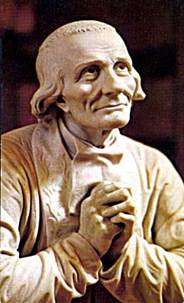
Praying with the Mysteries of the Holy Spirit
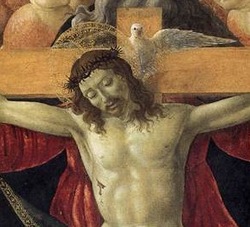 That we are in the days prior to the great feast of Pentecost our prayer ought to be more intensely centered on the third Person of the Blessed Trinity, God the Holy Spirit. My friend Dom Mark calls to mind the seven mysteries of the Holy Spirit found in the Rosary dealing with the action of the Holy Spirit in salvation history, especially attentive to the fact that these mysteries personally, deeply touch our own lives. His blog entry is helpful —read for yourself.
That we are in the days prior to the great feast of Pentecost our prayer ought to be more intensely centered on the third Person of the Blessed Trinity, God the Holy Spirit. My friend Dom Mark calls to mind the seven mysteries of the Holy Spirit found in the Rosary dealing with the action of the Holy Spirit in salvation history, especially attentive to the fact that these mysteries personally, deeply touch our own lives. His blog entry is helpful —read for yourself.

